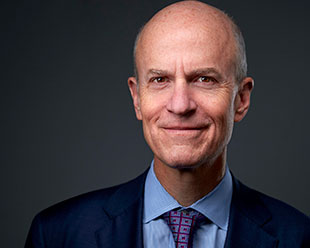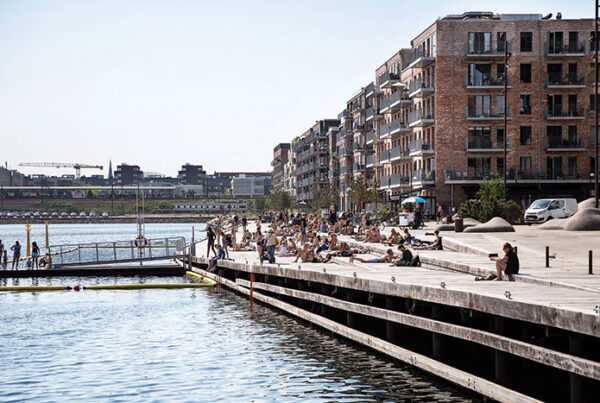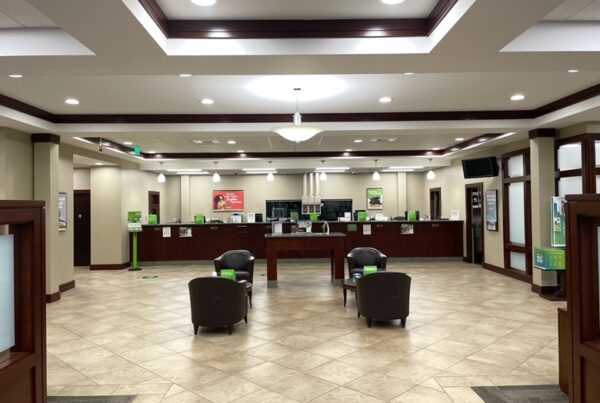Owen Thomas Commits $1 Million to New Net Zero Imperative Initiative
 Owen Thomas, through the family foundation he established with his wife, Jennifer, has made a substantial donation to the ULI Foundation to combat climate change, which will also further position ULI as a globally renowned authority on mitigating emissions in the built environment.
Owen Thomas, through the family foundation he established with his wife, Jennifer, has made a substantial donation to the ULI Foundation to combat climate change, which will also further position ULI as a globally renowned authority on mitigating emissions in the built environment.
Thomas has committed $1 million to create the Net Zero Imperative (NZI), a major ULI initiative that will involve assembling Advisory Services panels and technical assistance panels (TAPs) to advise building owners of all categories and their local governments on decarbonization strategies for the built environment. The donation—which has already catalyzed other gifts to support NZI—is expected to support as many as six panels per year for at least five years.
Real estate is responsible for 40 percent of U.S. greenhouse gas emissions, and up to 70 percent of emissions in cities. NZI seeks to provide a road map to decision-makers and policymakers on how to achieve net-zero carbon emissions in the built environment. Panelists will be working with building owners and communities at various stages of their decarbonization effort, including those just starting to decarbonize and those with efforts underway. The panel recommendations for decarbonization will be curated and aggregated, and reference materials will be made publicly available to encourage the broadest possible sharing among building owners and communities worldwide, ultimately expanding the reach and impact of the initiative.
The program will be administered by ULI’s Greenprint Center for Building Performance, whose members have committed to reducing carbon intensity by 50 percent from a 2009 baseline and achieving operational net-zero carbon emissions by 2050. ULI plans to set an industrywide goal through the initiative that is aligned with Greenprint’s goals.
“We are extremely grateful for this generous gift from Owen and his family,” says W. Edward Walter, ULI global chief executive officer. “This initiative will address one of the most pressing urban concerns—climate change—by leveraging one of ULI’s most effective, solution-oriented services and by building on our success in reducing the real estate industry’s carbon footprint.”
The ULI Foundation is currently in the quiet phase of its $100 million “Our Cities, Our Future” capital campaign. Using decarbonization strategies to reach net-zero emissions is one of the campaign’s three key areas of focus, along with attainable housing and diversity, equity, and inclusion. The gift from Thomas and his family reflects one of his top priorities—increasing sustainability throughout the built environment, with a particular emphasis on mitigating climate change.
“We are delighted that Owen is pursuing his commitment to sustainability with a gift to the ULI Foundation,” says Douglas Abbey, ULI Foundation campaign co-chair. “His generosity has encouraged other ULI leaders to join him in this effort, including Joe Azrack, Dan Cashdan, and Franz Colloredo-Mansfeld. Through these gifts, ULI can help cities create a more sustainable future for generations to come.”
Thomas, who is on the Foundation Board of Directors and is a member of the Foundation’s Charles Fraser Society, is chief executive officer of Boston Properties in New York City. Under his leadership, the company has become a world leader on climate change mitigation, sustainable development, and environmental stewardship.
Thomas recently spoke with Urban Land about the role of real estate in climate change mitigation and the importance of ULI’s leadership on the issue.
In what way has your ULI member experience inspired you to give to the ULI Foundation?
I have been a member of ULI for about 30 years and have been involved in ULI’s leadership for more than half of that time. I recognize areas of impact where ULI can be particularly effective, and one of those is sustainability—including decarbonization—and its significance in creating a thriving built environment. My long experience with the organization, combined with my understanding of its leadership and areas of expertise, led me to be comfortable making this major gift to create the Net Zero Imperative. I have every confidence that ULI will effectively execute on the goals of the gift.
What sparked and has sustained your interest in mitigating climate change through building decarbonization?
I grew up on a farm; I love the outdoors and have a deep appreciation for the natural environment. I know climate change is real and is caused by carbon emissions. The increase in the Earth’s temperature has had a devastating impact on the natural environment and the human condition, and this will only get worse. We all can and must do our part immediately to eliminate emissions as soon as practicable to stem further devastating impacts.
The built environment is responsible for 40 percent of carbon emissions. As a result, the real estate industry, which I am deeply involved in, has a huge role to play in solving this problem, and ULI has a unique platform to lead with solutions.
In my view, there are two primary topics related to sustainability and the built environment. The first topic is decarbonization, which is about addressing the climate change problem. The second topic is resiliency, which is about acknowledging that the problem exists and managing buildings and communities to mitigate and adapt. And while resiliency is very important, my gift is devoted solely to decarbonization efforts because I want to focus on how to solve the problem, not how to deal with it.
How do you believe ULI can be most effective in leading efforts to decarbonize commercial buildings?
ULI’s voice on this issue is heard and respected. Through the Greenprint Center there is already a tremendous amount of activity underway within ULI that addresses sustainable real estate development and operations. And ULI has already convened advisory panels for cities and projects around the country to help them reduce carbon emissions. We have members who serve on these panels who clearly have the expertise to make a difference.
The idea behind this initiative is to fund Advisory Services panels and TAPs for local governments, universities, hospitals, schools, corporations—any stakeholder with stewardship over a significant portfolio of buildings—and provide them with recommendations and plans to fully decarbonize. Once we have conducted a significant number of these panels, constant themes will emerge, such as guidance related to improving equipment, purchasing green power, and creating solar and other sustainable energy sources on site. The recommendations in the panel reports will be curated and compiled in “how-to” materials tailored for different asset classes that will be publicly available to building owners around the world to help them decarbonize.
Real estate is a fragmented industry: there are many owners who have different levels of expertise and financial capabilities. Democratizing decarbonization by providing building owners with easy road maps to reduce emissions in ways that fit their portfolios would be very valuable in making progress on this critical initiative.
Because the panel reports will be coming from ULI, they will have significant credibility and can be used as a starting point for organizations to invest their own capital, make decisions, and take action to decarbonize. We will be seeking a co-investment of at least 10 percent of the costs from the panel sponsors to ensure their commitment and vested interest in accomplishing the goal.
Is the Net Zero Imperative more targeted at building on decarbonization efforts already underway or kick-starting efforts?
It can do both. Organizations that have not yet started to decarbonize will have a comprehensive plan on how to get started and keep the effort going. Those that have efforts already underway will have an equally detailed plan on how to improve and/or accelerate on what they are already doing. The advantage of these reports is that—like all ULI advisory panel reports—they will be neutral, objective recommendations from industry experts with substantial experience in addressing an urban challenge, which in this case is decarbonizing buildings.
What is your measurement of success for this program?
One way to measure success would be to evaluate what has happened as a result of these panels, in terms of actions taken by recipients to implement recommendations and decarbonize. Additionally, we can track the number of people who are using the education materials created from the panels’ findings to form their own strategies for carbon reduction. And we can measure how much carbon is actually being reduced.
Another measurement of success would be for ULI to advise different levels of government on decarbonization. While cities are clearly on the front lines of climate change mitigation, the Biden administration is also very interested and active in this area. [A major goal of President Biden’s climate plan is to achieve net-zero carbon emissions from new construction in commercial real estate by 2030.] Advising federal, state, and local government agencies could and should be part of this program.
The ultimate measure of success is how well we expand the program’s reach. I absolutely want this to be a global initiative. I am very encouraged and excited that other gifts have been made to augment the program, and there is certainly a need for additional funding.
What is the timeline for this program?
The problem of carbon emissions is immediate: it needs to be solved as soon as practicable. Our family’s gift is intended for current use; it is not for an endowment. I gave this gift with the intention of it being fully spent in the next five years to pursue this important agenda. Decarbonization is a critically important topic that affects every aspect of our businesses, our industry, and our communities. I want the learnings from these panels executed by ULI to be shared as broadly as possible, and as quickly as possible, to ensure the greatest impact. UL
TRISH RIGGS, a public relations consultant and freelance writer with Keadle-Riggs Communications, was a senior vice president with ULI from 2005 to 2019.



